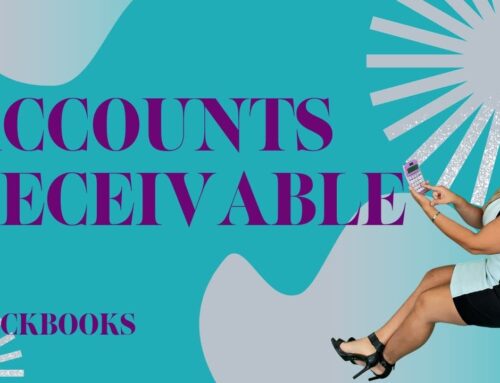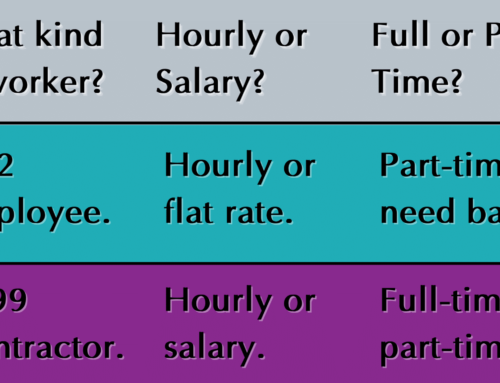Educational Video
S-Corporation Owner Payroll – a seemingly simple concept that seems to torture small business owners. If you have an S-Corporation that you are operating, the IRS says that you have to have payroll. If you are drawing profits and not paying yourself on payroll, you will have an IRS Problem.
I’m going to talk about payroll and S corporations. Sometimes business owners who have S corporations will tell me, “I don’t need to run payroll because I don’t have any employees.” But, you actually do need to run payroll, because as the owner of the S corporation, you need to have payroll. The reason for this is because the way the S corporation is treated on your personal tax return, the net income is subject to income tax on your schedule E, page two. However, that net income is not subject to self employment tax. The IRS, in a way to make sure that S corporation owners are getting social security paid in, have decided that you must run S corporation owner payroll.
The tricky part about this is there’s no real guideline as to what that amount should be. You could say, “I’m going to pay the minimum payroll. Maybe I’m only going to pay myself $10,000.” But, the IRS wants you to be reasonable. Well, what is reasonable? Reasonable is not a number. What I tell my clients is, when you’re trying to come up with your payroll, is to go to websites such as salary.com, put in an extremely vague term for whatever it is that you do. For example, for my business, I’m a CPA. I can vaguely say I’m an accountant or I’m a bookkeeper or a tax preparer. I can pull up the nice bell curve to show in my area of Hollywood, Florida what the average salaries look like in my area. If I can pick a number anywhere on that bell curve distribution, if I were to get audited by the IRS and they say, “Hey, how’d you come up with this salary,” I can pull out my report from salary.com and say, “Oh, I fall on the range of pay for an accountant in this area. Therefore, it’s justifiable.”
Now, there are some tax strategies you can apply to running payroll for your S corporation owner payroll. If you’re just looking to minimize tax and you want to pay the least amount of tax possible, you can push that salary as low as you think would be reasonable, to use the IRS’s terminology. Now, the problem with this is, over the course of your career, assuming you are in business for most of your working life, you’re going to have very little paid into social security. While you might tax advantaged now, down the road when you go to retire, you might be unhappy about that decision to pay in as little payroll tax as possible when you don’t have anything in social security paid in.
Another way to look at it is, you can use that salary as a mechanism to put away money into a retirement account. You can set up a SEP or a simple IRA account. These accounts let you put in contributions based on your salary. If, instead of only putting in $10,000, you put in $100,000, well, now you have the ability to put away a lot of money for retirement. What’s nice, in addition to putting away that money for retirement, is that those contributions are deductions to your S corporation. You’re going to save on income taxes, you’re going to help build your nest egg for the future, and you’re going to satisfy that IRS requirement that you need to run S corporation owner payroll.
Now, there’s also some more informal scenarios where, if you’re pulling cash out of your S corporation, is what we call distributions, shareholder distributions or owner distributions, you shouldn’t pull out more than about three times what you make in payroll. If you’re running a payroll of $10,000, you don’t want to have distributions that are really more than about $30,000. If you’re looking at a scenario where you have a client who’s maybe pulling out $200,000 in shareholder distributions and they only want to run $10,000 in payroll, the IRS can come in and say that that’s not reasonable. It’s not a reasonable ratio of distributions to payroll, and they could make you reclassify some of that. That’s not a good situation, because you would owe back payroll taxes and penalties and interest. It’s just not a good way to be.
If you own and operate an S-Corporation, you need payroll.. Make sure it’s reasonable and justifiable, and really think about using your payroll as a means of helping to build your financial future and your nest egg by opening a retirement account and making contributions to it. It’s not all about tax avoidance today, because sometimes the decision to put away money for down the road is actually a better scenario than how much tax you’re paying right now.








